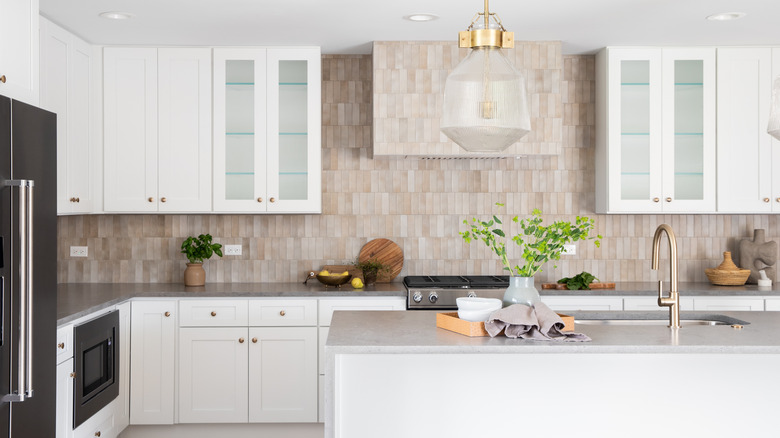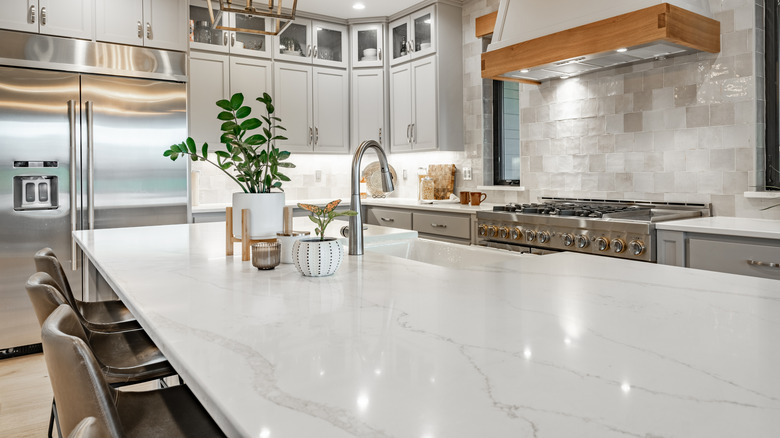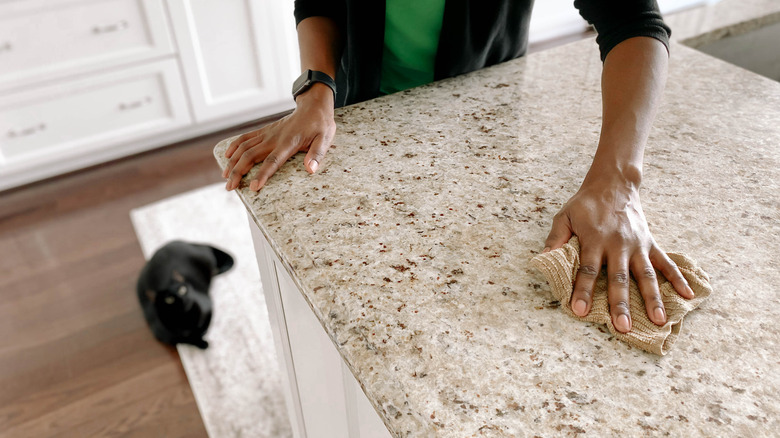Granite Vs Quartz: Which Countertop Material Is More Affordable?
Kitchen renovations can be a hassle as you try to balance between aesthetics and your budget. When choosing a countertop there are many factors that can affect your decision, including the cost of materials. Granite and quartz, two popular options, come in at various prices determined by factors ranging from the grade of the material, transportation, to installation.
In general, granite tends to be slightly more affordable than quartz. This is because the granite is extracted, cut into slabs, then prepped for the market. Quartz, on the other hand, is an engineered stone that has to be created. This is done by mixing crushed quartz crystals, polymers to bond the materials together, and pigments to create the design. So it's quite a process to get quartz on your kitchen countertops. Before installation, the cost of granite in basic colors could range from $40 to $60 per square foot, and quartz from $50 to $70.
But this is where things get wild. When you move into more exotic colors and patterns, high-end granite becomes more expensive, taking you to the $60 to $100 range, with quartz sitting in the $70 to $90 range. Because granite is a natural stone, no two pieces are the same, and while you get more common colorations, the more exotic colors earn a higher price tag. Quartz coloring and design is controlled, so certain colors and patterns can be popular and in high demand, but not rare as you can always make more.
Different grades of stone get fluctuating price tags
Like most things, the more premium the product, the higher the price tag — granite and quartz are no different. There are three levels of product grades — in granite they're known as Level 1 (entry-level), 2 (mid-level), and 3+ (high-level). In quartz it's the same thing, the names are just different: second choice, commercial grade, and first choice. It's important to remember that there are no standard prices across any of the grades — these depend on color, clarity, patterns, flaws, thickness, origin, custom cutting, or even the brand. But here's a basic cost guideline to give you an idea of how the costs can change per grade, making granite more expensive than quartz, then evening out as different factors come into play.
Entry-level, per square foot:
Granite: $40 to $60
Quartz: $50 to $70
Mid-level, per square foot:
Granite: $60 to $100
Quartz: $70 to $100
Premium-level, per square foot:
Granite: $100 to $200+
Quartz: $90 to $150+
It is generally agreed that your entry-level products are the widely available, run-of-the-mill (in granite) and mass-produced designs (in quartz), which are the most affordable, very durable, but quite uniform. Your mid-level products have better aesthetics, more unique designs, fewer flaws, and better durability. Then your premium-quality designs are often rare and one-of-a-kind in terms of colors and design, have almost zero detectable flaws, are the most durable, and have the highest quality finish.
Granite can be more expensive in the long term
While granite starts off being generally more affordable than quartz, in the long run it can work out to be more expensive. This is because granite needs more maintenance than quartz. Granite is a naturally porous material, so the slabs are sealed to prevent bacteria and other dirt from making a home in the naturally occurring spaces. If this happens to your kitchen countertop, the health risks increase significantly as this bacteria will grow over time and could end up on your food.
But granite needs to be resealed every year or two to keep it safe, as well as keep it resistant to scratches, scuffs, and stains. The cost of this resealing, including materials and the skilled labor to do it, can range from $200 to $1,200 per time. You can reseal your countertops yourself, but it can be a bit tricky getting the cracks filled and surface unmarred. On the flip side, quartz is non-porous so it doesn't need resealing, just regular attention with gentle cleaning materials.
Because prices can vary so much, and with all these factors feeding in, if you're trying to choose between granite and quartz (and have to keep within a certain budget) the best thing to do is choose what fits your daily needs best. Go with the best quality that you can afford to ensure greater longevity of this beautiful material, and keep in mind that it is an investment that adds to your home's value.


